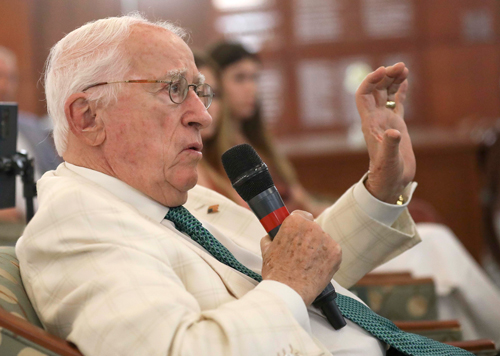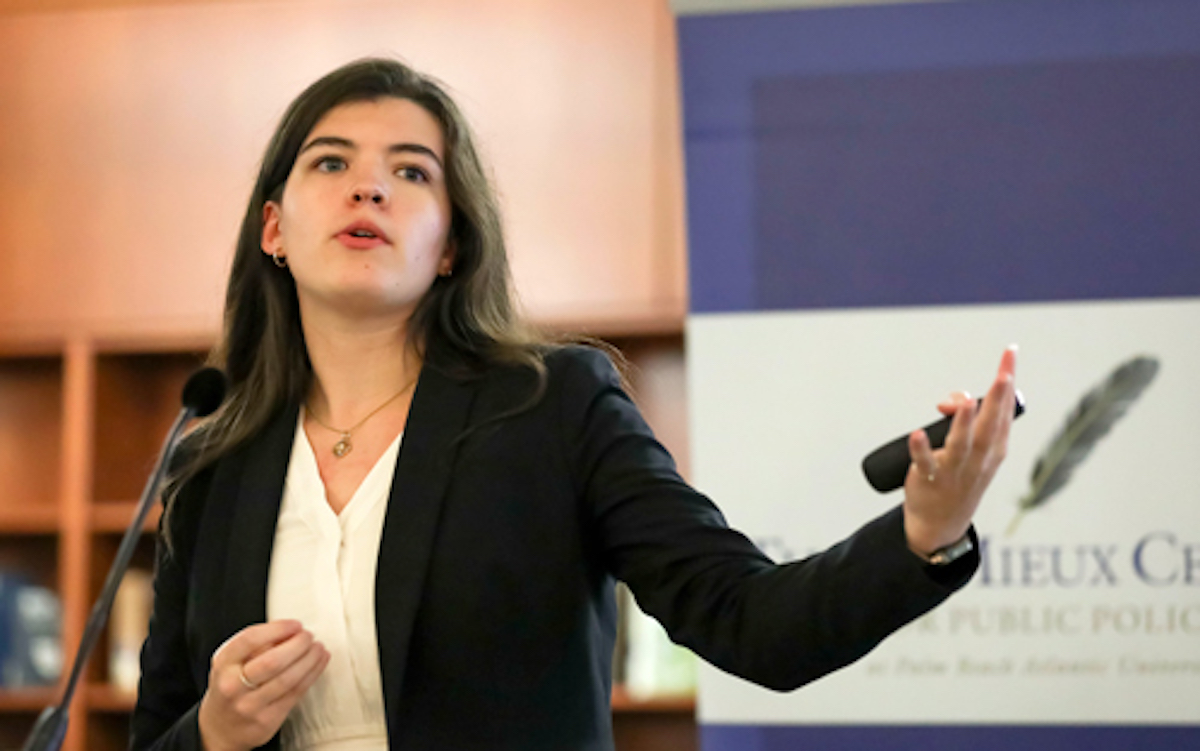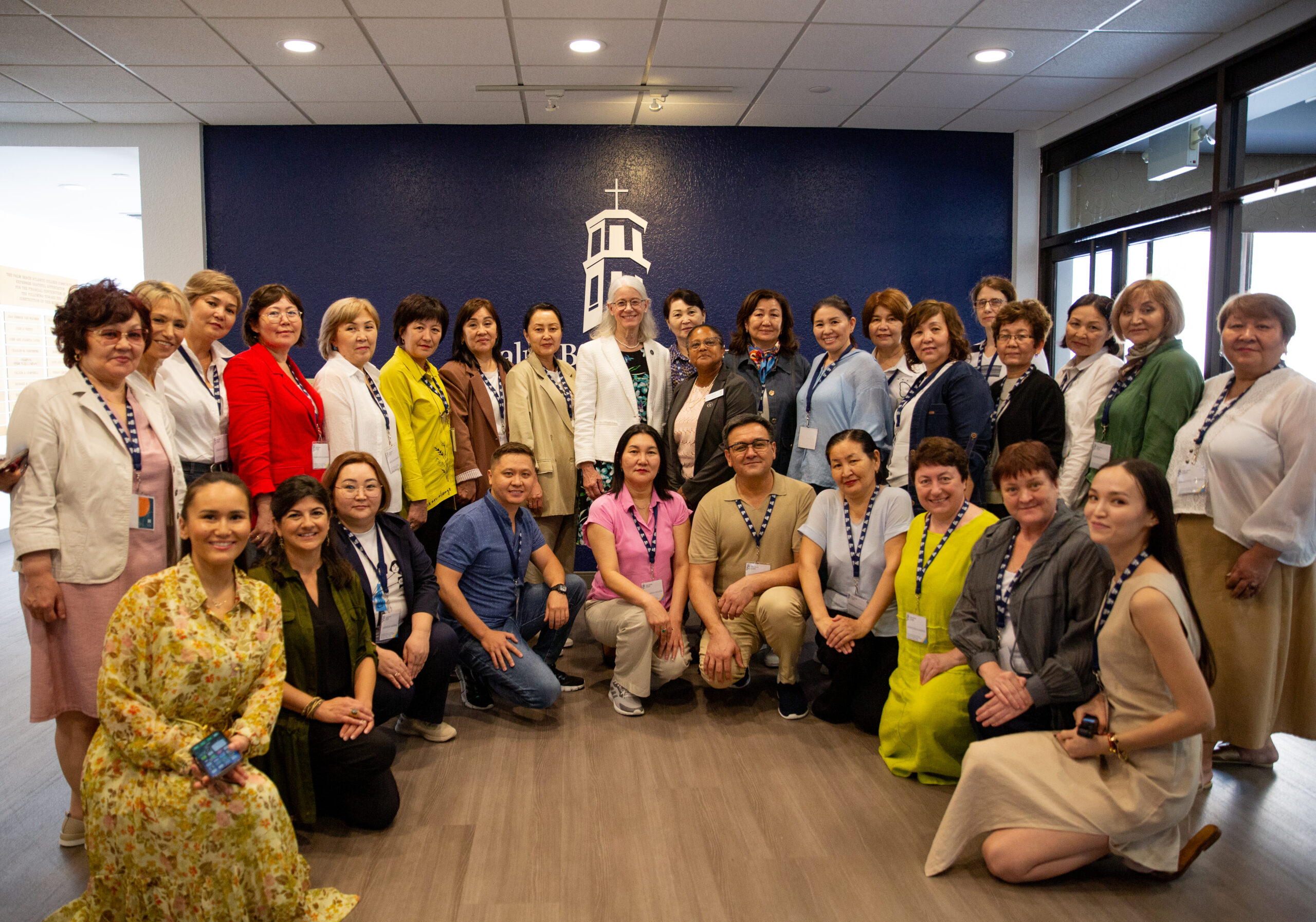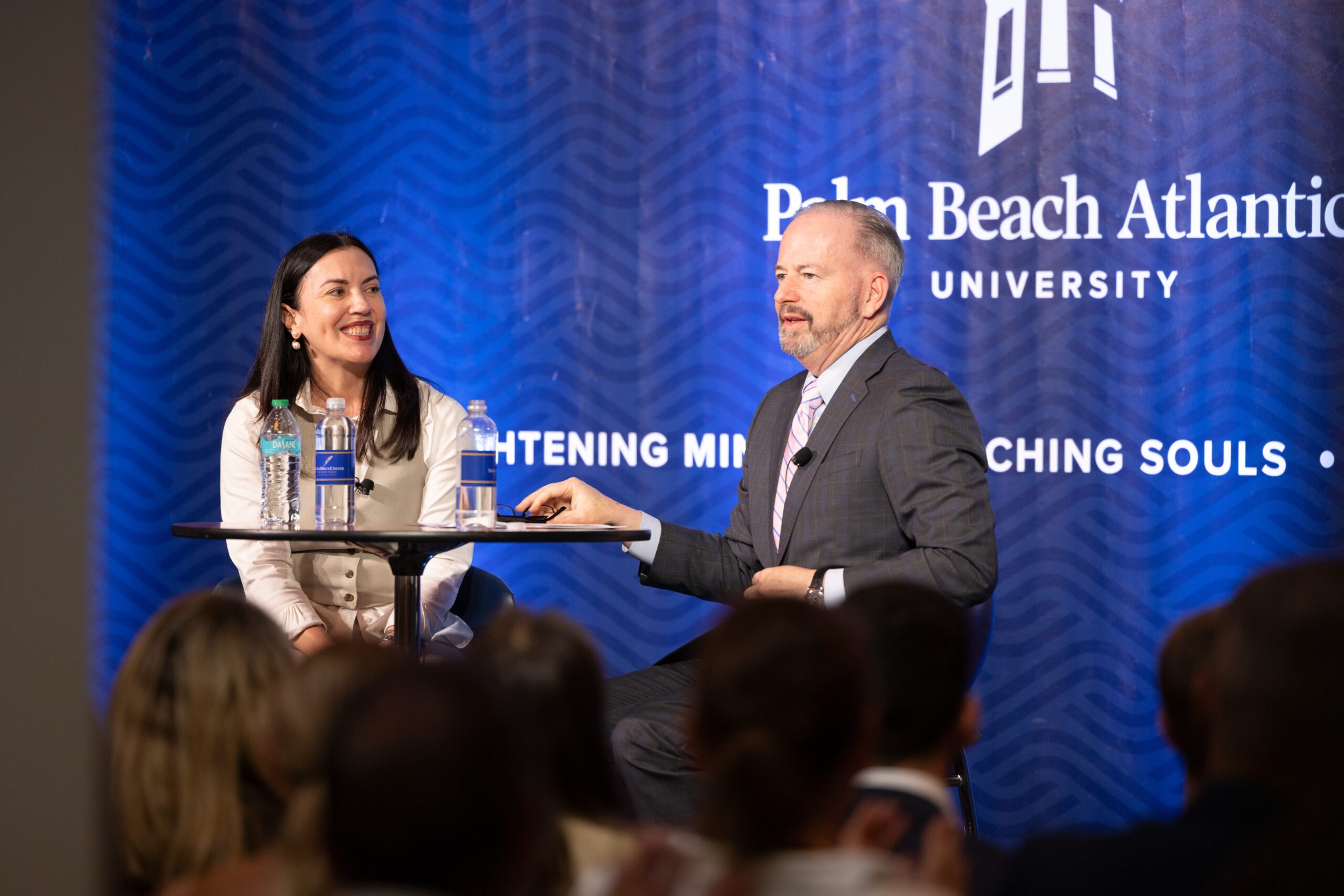When Freidheim Fellows Alexandra Pierce and Madeline Coggins selected election security and career and technical education as their research topics more than a year ago, they had no idea how timely their work would become.
Pierce submitted her proposal: “Election Law Reform: Ensuring the Integrity of the Election Process” long before the skepticism and strife that followed the November 2020 presidential election.
Coggins started rethinking career and technical education in her paper: “Advocating Better Funding for Vocational Training in Community Colleges” long before the labor shortage crippling businesses today.
On Friday, Pierce and Coggins presented their findings to a group that included former U.S. Sen. George LeMieux, Freidheim Fellows benefactor Cyrus Freidheim, University President Dr. Debra A. Schwinn, LeMieux Center for Public Policy Executive Director Dr. Robert Lloyd and faculty advisers Drs. Linda Raeder and Roger Chapman.

The Freidheim Fellows program is part of the LeMieux Center for Public Policy, one of Palm Beach Atlantic’s six Centers of Excellence. It is named for donors Marguerite “Mitzi” Freidheim and her husband, Cyrus. Fellows receive ongoing guidance from LeMieux, as well as a stipend to cover research costs and an independent study course.
In her presentation, Pierce highlighted the complexities of running an election, specifically the delicate balancing act between security and accessibility. Adding to the complexity, “states are at the forefront in choosing how they administer their elections,” although Congress has the power to override them, Pierce said.
As part of her research, Pierce pored over law textbooks and read bills that were more than 800 pages long. She reviewed reports of Palm Beach County voters receiving duplicate ballots in the mail and voter intimidation in Georgia.
“Legislation is the most important, powerful tool that has been issued to address this,” said Pierce, a senior from Plainville, Connecticut, studying philosophy, politics and economics.
An educated, engaged electorate is equally important, she added. The rancor happens when “Everyone thinks they’re right and everyone thinks they’re coming at it from a good place.”
Coggins, who graduated in the spring with a history degree and now works as director of digital media for Wall Private Wealth, agreed that “we want an educated populous.” A two-year education is especially appealing for people with jobs or families that prevent them from putting life on pause for four years, Coggins said. Students should not be put into a “one-size-fits-all” system.
Despite their efficiency, community colleges have little money for marketing and outreach, Coggins said. That should change, she said, because investing in community colleges is a way of investing in the American economy.
“This is a way to shake off that stigma and say that we want a workforce that’s able to help America grow to its fullest potential,” Coggins said.



